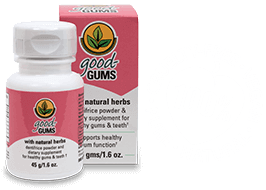6 Spices & Herbs Your Teeth LOVE

More and more people are starting to realize that many mainstream corporations don’t really have our best interests at heart when it comes to healthcare products. They are usually packed full of toxins and chemicals that are detrimental to our health, especially over the long term.
Fortunately, as a society, many of us are becoming inspired to return to the traditional and ancient health care practices that our ancestors relied upon before modern medicine.
Taking this back-to-basics approach regards to oral health may help us overcome any potential dangers of fluoride as well as other synthetic chemicals that are present in most dental products. Most of us are now looking for natural cures, using products as close to nature’s source as possible that provide safe, long-lasting effects on our oral and overall health.
For every health issue, nature has a cure!
So let’s see what nature has to offer when it comes to healing teeth and gum related issues! And guess what? They are super cheap and can be used in all your favorite dishes!
Clove
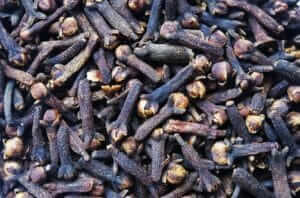
Do you remember your parents ever giving you cloves to chew on when you had a toothache as a child? Clove is such a great pain reliever that even dentists use it on their patients after surgery. It is a natural analgesic and antiseptic, primarily due to its main component eugenol. It reduces pain and inflammation and has a powerful numbing effect on the mouth and can even soothe the most excruciating of tooth pain!
Clove oil is also a natural antimicrobial, antifungal and antiviral and can treat a multitude of different ailments such as indigestion, headaches, asthma, stress and blood impurities. However, the most important and common use of clove oil is in dental care for its excellent antiseptic ability to numb and relieve pain.
Turmeric
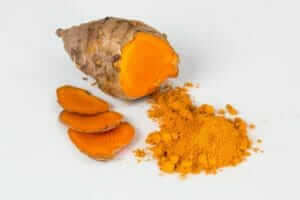
For centuries, this popular curry ingredient has been used in ancient Indian practices such as Ayurveda to heal tooth and gum ailments. Why? Because of its incredible anti-inflammatory properties! This wonder-herb is known for healing a whole variety of
conditions and has even been known to reverse pre-cancerous conditions for oral cancer. Several studies have evaluated the effectiveness of turmeric in controlling gum disease, reducing pain and halting the growth of harmful bacteria. One study even showed that turmeric has the ability to impact levels of inflammatory markers in the gingival fluid, which significantly reduces gingival inflammation.
Garlic
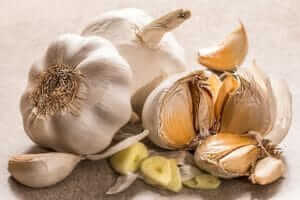
Garlic has been used to treat various ailments since around 3000 BC! It’s main property allicin (which is the chemical that gives you that dreaded ‘garlic breath’), is antifungal, antiviral and antibacterial, which makes it fantastic for helping to control bad bacteria in the mouth and letting good bacteria thrive.
In the past, garlic was used to treat scurvy. Scurvy is a condition that is usually characterized by gum disease and caused by poor oral hygiene and chronic vitamin C deficiency. Garlic, being a rich source of vitamin C and containing strong antiseptic and anti-inflammatory properties, was the ‘number one veggie’ many sailors would use to cure the disease.
Holy Basil
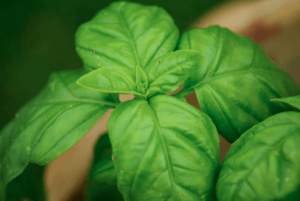
Holy Basil is native to India and also known as tulsi – ‘the incomparable one’. It is considered sacred and is used in Ayurvedic medicine because it is believed to be a herb that purifies one’s body and spirit and promotes a long, healthy life.
This powerful herb has excellent antibacterial and astringent properties which help to battle bacteria in the mouth and prevent cavities. It has been used for thousands of years as a relief from mouth sores and freshening the breath. Tulsi leaves contain strong antibacterials like carvacrol, terpene, and sesquiterpene b caryophyllene, which mean the leaves are chewed they can be very effective at treating oral infections.
Neem
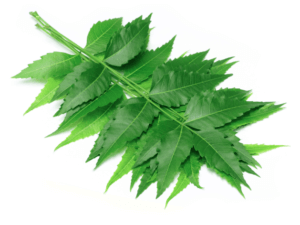
This extremely bitter herb is widely used in Ayurvedic practice. Traditionally, neem twigs were chewed or rubbed over teeth and gums to prevent rotting teeth and reduce inflammation. Indian Yogis still use this as their only oral care practice!
The use of neem is becoming increasingly popular in the world of homeopathy and other holistic healthcare practices and many practitioners acknowledge its antibacterial, astringent and antiseptic properties as a great way to tackle oral issues such as gingivitis, periodontitis and gum pockets. This powerful anti-inflammatory reduces gum swelling and eliminates bad bacteria from the mouth.
Cinnamon

Not only does this deliciously decadent spice improve taste and aroma, but it has properties that are antibacterial, antimicrobial, antiviral, antifungal, and slightly anesthetic, which makes it extremely beneficial for sore tissues.
Cinnamon has been used in traditional medicine for thousands of years and was historically used to numb teeth and gums, including the gums of teething toddlers.
Cinnamon is also super rich in calcium, which helps to strengthen the teeth and jaw. This aromatic spice contains extracts that fight bacteria in the mouth and protect against the oral microbes that cause tooth decay, cavities, gingivitis, and bad breath. And what makes cinnamon even more amazing? We use it in our all natural tooth powder – we like to do things like our ancestors!
The way forward is backward!
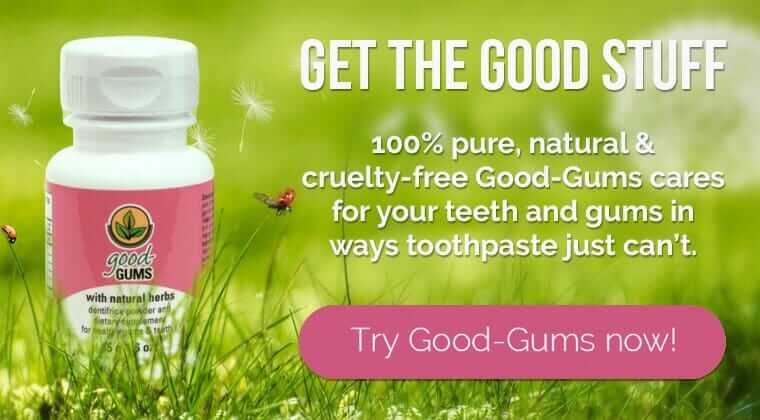
Subscribe To Our Newsletter
Be the first to receive all our news, offers and natural oral health tips and articles.


